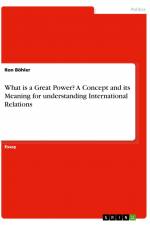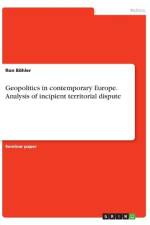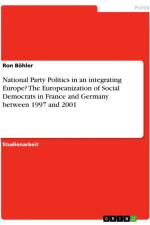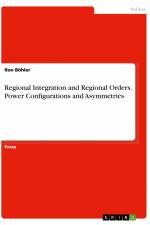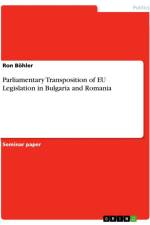von Ron Böhler
17,95 €
Seminar paper from the year 2011 in the subject Politics - International Politics - Topic: European Union, grade: 1.0, University of Bath, language: English, abstract: ¿For the last thirty years, Spanish foreign policy has had a single (though double-barrelled) objective: first, integration in Europe; secondly, integration of Europe.¿ (Torreblanca 2010, p.10).Not quite a decade after twelve European countries agreed on a Common Foreign and Security Policy (CFSP), national foreign policies among the EU have ¿significantly been changed, if not transformed, by participation over time in foreign policy making at the European level¿ (White 2001, p.6). This, indeed, says little about the nature and direction of the changes that occurred and whether these conduced to general foreign policy convergence among EU member states or perhaps even fostered greater divergence.In recent years, Europeanisation processes of national foreign policies have attracted more and more scholarly attention. While some case studies focus on the European impact on Central and Northern European states, for instance the Netherlands, Denmark and Ireland (Tonra 2001), others evaluate the distinctive features of the ¿Big Three¿ ¿ France, the United Kingdom and Germany ¿ in EU foreign policy-making (Wong 2006; Gross 2009; Aggestam 2011 Forthcoming). In contrast, EU states in the Southern periphery have substantially been described as adaptive laggards that ¿displayed remarkably resilient and distinctive features of state tradition and political culture despite the pressures of the EU¿ (Featherstone and Kazamias 2001, p.2). One of these countries, Spain, joined the European Union at a time when joint efforts to encourage a common foreign and security policy framework were still in the early stages of development. It will be argued below that Spain, at first assumed to be an enfant terrible within the European foreign policy framework, turned out to be an enfant sage with greater ambitions. From the viewpoint of social constructivism, the changing behaviour as well as the active role that Spain took very early in European foreign policy will be portrayed.






